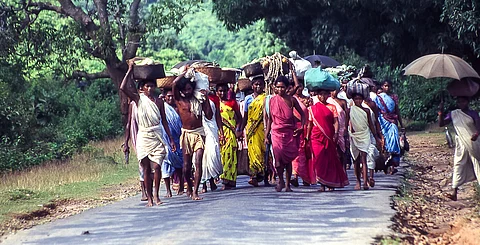

Indigenous Peoples and local communities (IPLCs) are essential for protecting nature and managing important resources like water and food while also fighting climate change, according to the latest report by the Intergovernmental Science-Policy Platform on Biodiversity and Ecosystem Services (IPBES).
These communities have unique knowledge and sustainable practices that help conserve biodiversity, support food systems, and protect water resources. Their perspectives provide solutions to numerous environmental and social issues, the Assessment Report on the Interlinkages Among Biodiversity, Water, Food and Health — known as the Nexus Report — noted.
Indigenous territories cover about 20 per cent of the Earth’s surface but contain around 80 per cent of its biodiversity, with important ecosystems such as forests, wetlands, and coral reefs. IPLCs view nature as intrinsically linked to their cultural identity and livelihoods, which motivates their dedication to conservation.
Their traditional knowledge and practices come from a deep understanding of the balance in nature. For example, they manage forests to prevent deforestation, conserve water, and farm in ways that keep the soil healthy.
Their sustainable practices contribute in maintain biodiversity, regulate water cycles, and ensure food security. Forests managed by IPLCs are crucial for absorbing greenhouse gases, which helps slow climate change. Additionally, wetlands and coral reefs on Indigenous lands protect communities from floods and storms while supporting local fisheries.
Despite their contributions, IPLCs are under increasing pressure from illegal activities like logging, mining, and industrial farming that happen on their lands without their permission. These actions lead to deforestation, loss of biodiversity, and pollution, according to the report.
Mining near IPLC lands has also caused mercury contamination in rivers, harming both human health and aquatic ecosystems.
Furthermore, IPLCs often struggle to have a voice in decisions about land use and conservation, which undermines their rights and threatens the ecosystems they protect. Cultural loss is also a concern as traditional knowledge and languages may vanish due to environmental changes and marginalisation.
Several environmental pressures affect IPLC lands. Mercury pollution caused by mining has led to high mercury levels in water, fish, and soil, impacting both biodiversity and human health.
Illegal resource extraction activities like logging, mining, and overfishing on IPLC lands are worth between $100 billion and $300 billion each year, causing serious damage to ecosystems and the livelihoods of indigenous peoples.
The report prioritised the necessity of supporting IPLCs to achieve global sustainability goals. Their success stories show they are effective stewards of nature, but they need more recognition and support, it said.
It recommended securing land rights to protect IPLC lands from illegal activities and ensuring they have a say in policies affecting their territories. This inclusion would allow their traditional knowledge to complement modern science and lead to better solutions.
Providing financial resources is also imperative, as per the report, as IPLCs often lack funding to expand their conservation efforts. Increased financial support can help them scale up successful practices and restore degraded ecosystems.
Moreover, incorporating IPLC knowledge into broader environmental and development strategies recognises their time-tested practices that harmonise with nature.
Article 8(j) of the Convention on Biological Diversity highlights the significance of traditional knowledge and practices of indigenous peoples in conserving biodiversity, recognising their voices at a global level. This acknowledgment is key to ensuring their contributions are fully integrated into conservation efforts, the report said.